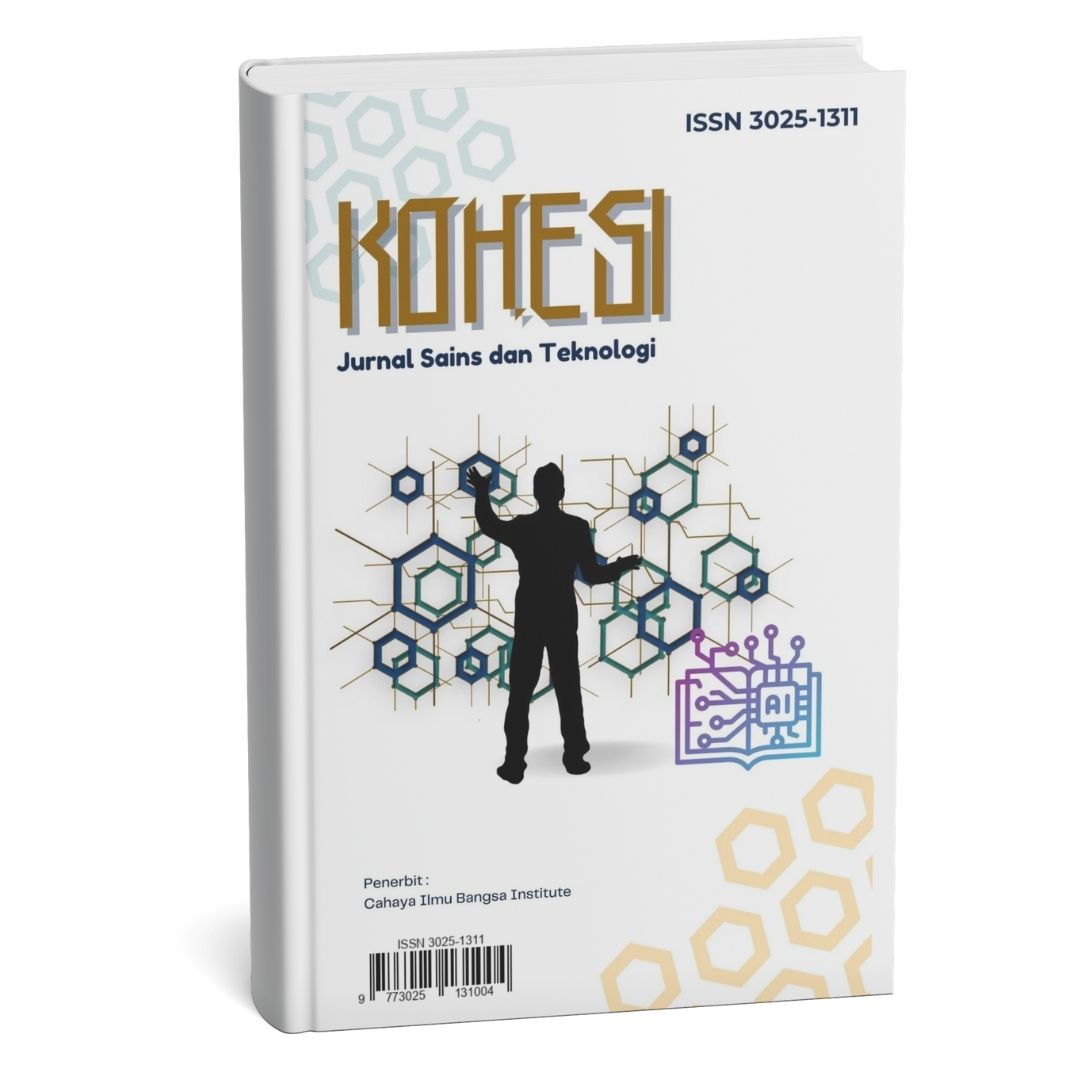RANCANG BANGUN SISTEM SMART KWH METER DENGAN MONITORING DAN PERHITUNGAN BIAYA BEBAN SECARA JARAK JAUH PADA INSTALASI LISTRIK RUMAH TANGGA
Main Article Content
Abstract
Electricity usage in households continues to increase in line with technological developments and lifestyles in the millennial era. However, continuous increases in basic electricity tariffs have led to higher costs for consumers. Meanwhile, conventional kWh meters cannot provide direct information on the amount of electricity used. Therefore, a real-time electricity load monitoring system is needed that not only displays energy consumption information but also automatically calculates electricity usage costs. This system is expected to help users monitor and control electricity usage in a more economical and efficient manner. This study aims to design and develop a Smart KWh Meter system based on ESP32 and PZEM-004T sensors, capable of monitoring electricity consumption and calculating real-time load costs through the Adafruit IO platform. This research uses a descriptive method with a case study approach. The Research and Development (R&D) approach is applied to design and build a Smart KWh Meter system capable of monitoring and calculating electricity costs, which can be monitored remotely. This system also provides a summary of identified load data, particularly per load in residential electrical installations. This research will develop a system that measures electricity consumption and automatically calculates the associated costs. The test results show that the Smart KWh Meter system is capable of measuring electrical parameters such as voltage, current, and power with an accuracy of between 95.7% and 100% and a deviation of ±0 – 5% compared to standard measuring instruments. The factors causing the difference in values include load fluctuations during data collection, the tolerance of the PZEM-004T sensor components, and incomplete calibration. However, overall, the system remains consistent, responsive, and suitable for use as a real-time monitoring tool for household electricity consumption. The Smart KWh Meter system, designed based on ESP32, PZEM-004T sensors, and IoT, has been successfully implemented and demonstrates adequate measurement accuracy, particularly for voltage and current with a deviation of ±0–5%. The system can monitor energy consumption and calculate estimated costs in real-time, including an additional 10% PBJT-TL, and can be accessed remotely as long as it is connected to the internet. With power selection and tariff settings via a touchscreen, this system is suitable for monitoring household electricity consumption.
Article Details
Section
This work is licensed under a Creative Commons Attribution-NonCommercial 4.0 International License.
How to Cite
References
Arif, N., Lukita, A., Aribowo, W., & Chandra, A. (2024). Rancang Bangun Alat Pembersih Solar Panel Menggunakan Wiper Dan Rolling Brush Secara Otomatis Berbasis Mqtt. 6. https://doi.org/10.30996/elsains.v6i1.10309
Ayuningtyas, A. A. (2022). Penerapan Internet of things (IoT) dalam Upaya Mewujudkan Perpustakaan Digital di Era Society 5.0. Jurnal Ilmu Perpustakaan, 11(1), 29–36. https://ejournal3.undip.ac.id/index.php/jip/article/view/40244
Bayu, A., Pratama, Much Ibnu Subroto, I., & Riansyah, A. (2022). Sistem Monitoring Dan Kontrol Kualitas Air Pada Kolam Ikan Koi Berbasis Internet of Things (IoT). Jurnal Transistor Elektro Dan Informatika (TRANSISTOR EI), 4(3), 171–180. http://jurnal.unissula.ac.id/online/index.php/EI
Cholish, C., Rimbawati, R., & Hutasuhut, A. A. (2017). Analisa Perbandingan Switch Mode Power Supply (SMPS) dan Transformator Linear Pada Audio Amplifier. CIRCUIT: Jurnal Ilmiah Pendidikan Teknik Elektro, 1(2), 90–102. https://doi.org/10.22373/crc.v1i2.2079
Darma, S. (2019). Studi sistem peneraan kwh meter. 4(3), 158–165.
Harpad, B., Salmon, S., & Saputra, R. M. (2022). Sistem Monitoring Kualitas Udara Di Kawasan Industri Dengan Nodemcu ESP32 Berbasis IoT. Jurnal Informatika Wicida, 12(2), 39–47. https://doi.org/10.46984/inf-wcd.1955
Ii, B. A. B., & Pustaka, T. (n.d.). TINJAUAN PUSTAKA 2.1 Kajian Teori 2.1.1. Mikrokontroller ESP-32. 4–10.
Karuniawan, A. E., Teknik, F., Studi, P., Elektro, T., & Kudus, U. M. (2024). SISTEM MONITORING KONSUMSI ENERGI LISTRIK KWH METER SECARA REAL TIME PADA RUMAH TANGGA BERBASIS IOT. 4(1), 15–24.
Nizam, M. N., Haris Yuana, & Zunita Wulansari. (2022). Mikrokontroler ESP 32 Sebagai Alat Monitoring Pintu Berbasis Web. JATI (Jurnal Mahasiswa Teknik Informatika), 6(2), 767–772. https://doi.org/10.36040/jati.v6i2.5713
PUJIANTO, M. C. C., Winarno, I., Winarno, I., Rahmatullah, D., & Rahmatullah, D. (2022). Smart Meter Dan Pengontrol Penggunaan Energi Listrik Berdasarkan Smart Relay Dengan Komunikasi Ethernet Dan Wireless. Media Elektrika, 14(2), 87. https://doi.org/10.26714/me.v14i2.7047
Susanto, B. M., Atmadji, E. S. J., & Brenkman, W. L. (2018). Implementasi Mqtt Protocol Pada Smart Home Security Berbasis Web. Jurnal Informatika Polinema, 4(3), 201–205. https://doi.org/10.33795/jip.v4i3.207
Sutono, S., & Nursoparisa, A. (2020). Perancangan Sistem Kendali Automatisasi Control Debit Air pada Pengisian Galon Menggunakan Modul Arduino. Media Jurnal Informatika, 11(1), 33. https://doi.org/10.35194/mji.v11i1.885

